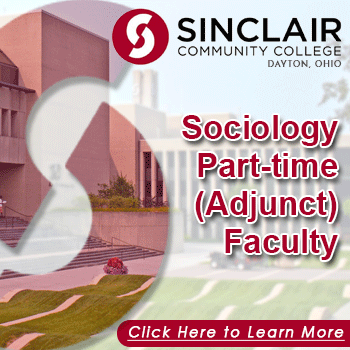
Post-Doctoral Research Associate in Journalism
Job Description
Full job description
Required Qualifications:
- All candidates must expect to earn a Ph.D. in Mass Communication or a related field (e.g., journalism, political science) by the appointment start-date (08/30/2024)
- Expertise in journalism and evidence of excellence in conducting peer-reviewed research in higher education settings
Preferred Qualifications:
- Prior work experience in journalism or media professions
- Prior teaching and research experience in journalism
- Demonstrated potential to conduct research
- A demonstrated commitment, knowledge, and skill in working with students, faculty, and staff to foster an environment of inclusion and belonging.
- Engagement with new technologies, such as artificial intelligence, in research and the study of ethics in its use is a plus.
Position Overview:
The Hubbard School of Journalism and Mass Communication within the College of Liberal Arts at the University of Minnesota invites applications for a 9-month (AY24-25 August-May) position as a Postdoctoral Research Associate in Journalism, with an appointment in the Minnesota Journalism Center, beginning Fall 2024 (start date: 8/26/2024). This is a 100%-time appointment as a postdoctoral associate (Job Code 9546).
At the University of Minnesota, postdoctoral associates are academic employees who conduct research, teach, or provide service that enhances career skills or allows for opportunities to learn new research or teaching techniques. They are trained by and work with a faculty mentor who collaboratively determines the training agenda. The goal of this position is to provide the candidate with advanced training in research and engagement associated with the Minnesota Journalism Center. Candidates will also have opportunities to join, learn from, and contribute to the broader mission of the Minnesota Journalism Center. Candidates who have research trajectories that align with current faculty research is a plus. The identified mentor for this postdoctoral associate is Dr. Benjamin Toff, who will also help the postdoctoral fellow position their teaching and research for future opportunities.
Job Responsibilities:
Participate in the design, implementation, and evaluation of research studies: 50%
The candidate will lead research development activities, as determined in consultation with a faculty mentor. Specifically the candidate will work on two projects: one studying the effectiveness of local news interventions designed to mitigate and reverse distrust and news avoidance among segments of the public and the second an ongoing study examining changes in the supply of information providers statewide. The postdoc will work with Dr. Benjamin Toff and other collaborators at the University of Minnesota’s Hubbard School and Minnesota Journalism Center.
Project management around data collection, engagement with local news organizations, and evaluation of data: 20%
The candidate will assist with managing engagement efforts working with local newsroom partners and aspects of data collection and analysis.
Collaborate on publication of findings: 20%
The candidate will work with colleagues on publishing research results for multiple outputs, including peer reviewed journals, white papers, or other public-facing communications that translate findings for a diverse range of audiences and stakeholders.
Professional development, teaching and training: 10%
Responsibilities include advising students, developing professional skills and training by attending professional development meetings.
About the Minnesota Journalism Center
For 45 years, the Minnesota Journalism Center has been an important convener and facilitator connecting media professionals to the knowledge networks housed within the university and the broader public more generally. Through the promotion of collaborative partnerships between professional journalism communities, the public, and the academics who study them both, the Center seeks to combine outreach and training, applied research initiatives, and journalism education that seeks to shore up and foster healthier, more sustainable, and more inclusive local information ecosystems.
About the Hubbard School of Journalism and Mass Communication
The Hubbard School of Journalism and Mass Communication at the University of Minnesota is part of the College of Liberal Arts and is accredited by the Accrediting Council for Journalism and Mass Communication. The Hubbard School offers majors in Strategic Communication - Advertising and Public Relations, Professional Journalism, and Media and Information; and minors in Media and Information and Digital Media Studies. The Hubbard School offers an academic M.A. and Ph.D. and a Professional M.A. in Strategic Communication.
Housed in Murphy Hall, a state-of-the-art facility for teaching and research of journalism, strategic communication, and emerging media studies, the Hubbard School is home to the Silha Center for the Study of Media Ethics and Law, the Minnesota Journalism Center, the Hubbard Digital Studios, and the Digital Information Research Center/Sevareid Library. Hubbard facilities also include the Murphy Hall conference center, multimedia classrooms, and psychophysiological communication research labs, and a focus group room, which is used to support graduate-level experimental research. For further information, please visit the Hubbard School of Journalism and Mass Communication's website, at: https://cla.umn.edu/hsjmc
About the College of Liberal Arts
Home to the arts, social sciences and humanities disciplines and programs, the College of Liberal Arts is the largest college in the University of Minnesota and comprises 31 academic departments, and over 20 interdisciplinary research centers and administrative/support units. CLA has over 1,300 faculty and staff spanning research, teaching, advising, outreach, and administrative functions. CLA units reside in over 20 buildings on the East Bank and West Bank of the Twin Cities campus. CLA enrolls nearly 13,000 undergraduate students, more than 40% of the undergraduate enrollment on the Twin Cities campus, 1,400 graduate students, and has an annual all-funds budget of $290 million.
CLA is a destination for curious, compassionate individuals who are committed to making our increasingly interdependent and diverse global community work for everyone. That foundational commitment begins in our CLA Constitution. CLA is committed to increasing enrollment of underrepresented and under-resourced students, diversifying our faculty across all disciplines, recruiting, and retaining a diverse staff, and promoting the expression and exploration of diverse perspectives and viewpoints—so that we all gain the background knowledge and analytical skills we need to understand and respect differences.
Working in CLA
Applications must be submitted online. To be considered for this position, please click the Apply button and follow the instructions. You will be given the opportunity to complete an online application for the position and attach a cover letter and curriculum vita.
Additional documents may be attached after application by accessing your "My Job Applications" page and uploading documents in the "My Cover Letters and Attachments" section.
Priority date for application consideration is April 22, 2024. In order to be considered for this position, applicants must submit the following materials as PDF files:
- Cover letter
- Curriculum Vita
- Three references
To request an accommodation during the application process, please e-mail employ@umn.edu or call (612) 624-8647.
For inquiries regarding the postdoctoral teaching position, please contact Dr. Benjamin Toff, Director of the Minnesota Journalism Center and Chair of the search committee, by email: btoff@umn.edu
For inquires regarding the Hubbard School of Journalism and Mass Communication, please contact Dr. Elisia Cohen, Professor and Director of the School, by email: ecohen@umn.edu.
The University recognizes and values the importance of diversity and inclusion in enriching the employment experience of its employees and in supporting the academic mission. The University is committed to attracting and retaining employees with varying identities and backgrounds.
The University of Minnesota provides equal access to and opportunity in its programs, facilities, and employment without regard to race, color, creed, religion, national origin, gender, age, marital status, disability, public assistance status, veteran status, sexual orientation, gender identity, or gender expression. To learn more about diversity at the U: http://diversity.umn.edu
Any offer of employment is contingent upon the successful completion of a background check. Our presumption is that prospective employees are eligible to work here. Criminal convictions do not automatically disqualify finalists from employment.
The University of Minnesota, Twin Cities (UMTC)
The University of Minnesota, Twin Cities (UMTC), is among the largest public research universities in the country, offering undergraduate, graduate, and professional students a multitude of opportunities for study and research. Located at the heart of one of the nation's most vibrant, diverse metropolitan communities, students on the campuses in Minneapolis and St. Paul benefit from extensive partnerships with world-renowned health centers, international corporations, government agencies, and arts, nonprofit, and public service organizations.
At the University of Minnesota, we are proud to be recognized by the Star Tribune as a Top Workplace for 2021, as well as by Forbes as Best Employers for Women and one of America’s Best Employers (2015, 2018, 2019, 2023), Best Employer for Diversity (2019, 2020), Best Employer for New Grads (2018, 2019), and Best Employer by State (2019, 2022).
*Please mention you saw this ad on AcademicJobs.*




